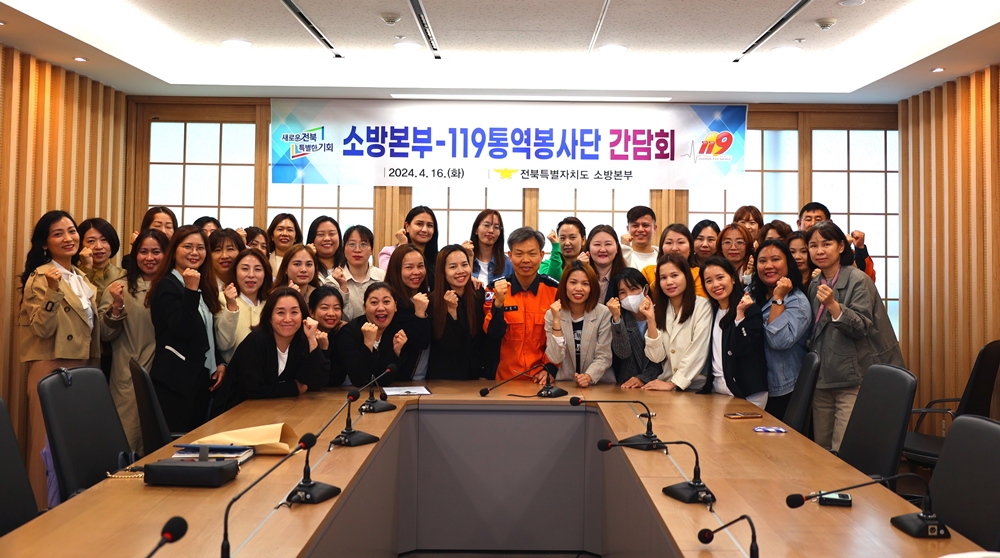
Jeonbuk Fire Service on April 16 holds an event at the headquarters of Jeonbuk State in Jeonju, Jeollabuk-do Province, to honor an interpretation volunteer group for emergency 119 service. Comprising some 60 migrant women and foreign students, the group offers interpretation in 12 languages around the clock. (Jeonbuk Fire Service)
By Charles Audouin
A national contest has searched for benchmark practices that help foreign residents settle in regional communities and support local governments to implement such programs.
The Ministry of the Interior and Safety on Nov. 19 said it would judge the next day the finals of the Contest for Best Local Government Practices in Foreign Resident Support at the central building of Government Complex Sejong.
As of last year, the country had 2.46 million foreign residents who lived in Korea for over three months, accounting for 4.8% of the national population. Each local government is pushing to customize programs to aid such expats, as their stable settlement is growingly important to combat the hollowing out of provincial areas.
Eight exemplary cases that passed the first round of expert evaluations and the second judged by the public advanced to the finals.
The first four nominees are the Maeulpoom Bodum Classroom for multicultural children vulnerable to inadequate child care (Saha-gu District of Busan); expat settlement program that helps from birth to employment qualification (Suyeong-gu District of Busan); care community for the elderly, multicultural families and regions (Dalseo-gu District of Daegu); and medical support based on artificial intelligence for foreign nationals (Incheon).
The other four are customized support for the lifecycle of foreign nationals (Ansan, Gyeonggi-do Province); support service for expats for user interfaces for unmanned issuance of civil documents (Hongcheong-gun County, Gangwon-do Province); Korean-language education for hearing-impaired multicultural families (Cheonan, Chungcheongnam-do Province); and a volunteer interpretation group for emergency 119 services (Jeollabuk-do Province).
The combined subsidy prize of KRW 400 million comprises the top award of KRW 100 million, KRW 60 million to each runner-up and KRW 30 million for third.
The ministry plans to promote and share nationwide the exemplary cases of expat settlement in the provinces honored through this contest. The plan is to have local governments reflect such practices in policy.
Last year, an acclaimed interpretation service for public medical institutions in Busan won the top prize. About 70 expats from 15 countries worked as interpreters for such institutions to raise medical convenience for foreign nationals in the country’s No. 2 city.
caudouin@korea.kr























